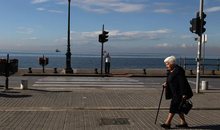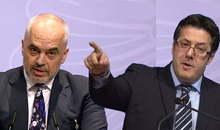
 Flash News
Flash News
The mystery of Renis Dobra's murder, the two main leads of the investigation are revealed
Rama's ultimatum: On Monday, all heads of administrative units must be dismissed
Fires in the country, 4 fires still active, what is the situation?
Rama targets Shkodra prosecutor again: Gjeli wrote philosophical essay with innocence of illegal construction
Wanted for theft, 26-year-old arrested in Durrës
German Elections/Analysis: Far-right party expects increase in support in February 23 elections
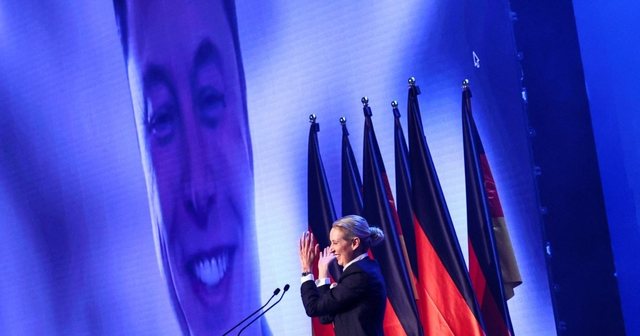
The Alternative for Germany (AfD) appears to be on track for its strongest showing in national elections yet. German elections are due this month. Although it is unlikely to win a share of power anytime soon, the party has become a factor that other politicians cannot ignore and has managed to influence the debate on migration in Germany.
The far-right party first entered Germany's national parliament eight years ago amid discontent with the influx of migrants in the mid-2010s. Curbing immigration remains its main theme. However, the party has proven adept at exploiting discontent on other issues: Germany's move away from fossil fuels, restrictions during the COVID-19 pandemic and support for Ukraine after Moscow's aggression began nearly three years ago.
The Alternative for Germany (AfD), founded in 2013, initially focused on opposing bailouts for struggling countries during the eurozone debt crisis. The measures were described by German Chancellor Angela Merkel as “without alternative.” It was initially known as the “party of professors,” a reference to the party’s leading figures in its early days, although it has since become identified with a strong far-right wing.
Over the years, the AfD has become more radical and has changed leaders several times. It was Chancellor Merkel's decision in 2015 to allow in large numbers of immigrants that strengthened it as a political force. In the 2017 national elections, it won 12.6% of the vote, securing seats in the German parliament for the first time.
After returning to parliament in 2021 with a reduced support of 10.3%, the AfD gained strength as Chancellor Olaf Scholz's center-left government faced a series of crises, some of its own making, and finally collapsed.
Germany faced a wave of protests a year ago sparked by a report that showed right-wing extremists met to discuss deporting millions of migrants, including some with German citizenship. At that meeting, the report said, AfD members were present.
But that did not do the AfD any lasting harm in the polls. It finished second in the European Parliament elections in June and September. Meanwhile, in a pair of state elections, it was its most prominent right-wing figure, Björn Höcke, who secured the first far-right victory in Germany since World War II.
The AfD is heading into the February 23 election with renewed confidence and more radical language. Alice Weidel, its first female candidate for chancellor, has coined the term “re-emigration” as the party calls for large-scale deportations of people without a legal right to be in Germany.
The AfD calls for the immediate lifting of sanctions against Russia and opposes arms shipments to Ukraine. It wants Germany to start using a national currency. It also wants the European Union to become a more freely functioning “association of European nations,” although it does not directly call for leaving the 27-nation bloc.
Germany's intelligence agency is keeping the party under surveillance for suspected right-wing extremism. AfD branches in three eastern states are called "confirmed right-wing extremist" groups. The AfD strongly disputes these assessments and denies any links to the Nazi past. Mr. Höcke has appealed two convictions for knowingly using a Nazi slogan at a political event.
The AfD has support across Germany and is represented in all but two of the 16 state legislatures, but the party is strongest in the former communist and less prosperous east.
It has a unique ability to exploit issues “that other parties do not address with the same clarity and intensity or radicalism,” says Wolfgang Schroeder, a professor of political science at the Berlin Center for Social Sciences. “In addition, it is an internet party and from the beginning it used the power of the internet for communication much better than all the other German parties combined.”
This has helped it secure support among young voters in recent regional elections. The party portrays itself as a force against elites at a time when trust in politicians is declining. The AfD has often referred to the 'old parties' as a 'cartel'.
Professor Schroeder described it as “a field that gathers anger and resentment.” Other parties say they will not work with it.
Who are her friends abroad?
The AfD's rise coincides with the rise of far-right parties in many other European countries, including Austria's Freedom Party and France's National Rally, with which it shares many points of contact. Ms Weidel was in Budapest to visit Hungarian Prime Minister Viktor Orbán on Wednesday.
However, it is not part of the group of these parties called 'Patriots for Europe' in the European Parliament after some tensions between them before last year's EU elections. The AfD was excluded after its leading candidate at the time, Maximilian Krah, said that not all members of the Nazi SS group "were necessarily criminals".
The party has found an enthusiastic supporter in billionaire Elon Musk, a close ally of US President Donald Trump. Mr Musk has declared that “only the AfD can save Germany”. He held a live chat on the social network ‘X’ with Ms Weidel, the AfD candidate for chancellor, and made a live video link to an AfD campaign rally.
At that rally, Ms. Weidel vowed to "make Germany great again," echoing the American president's slogan./ VOA
Latest news



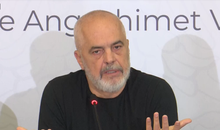
Rama's ultimatum: On Monday, all heads of administrative units must be dismissed
2025-07-11 11:05:59
Fires in the country, 4 fires still active, what is the situation?
2025-07-11 10:56:23
Government irony: Rama strips Dredha of power, then demands law and order
2025-07-11 10:49:10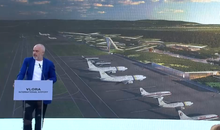
German media: Vlora Airport 'kills' one of Europe's largest wetlands!
2025-07-11 10:37:46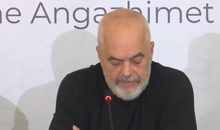

Amid the Alps in Theth, the law punishes even those who try to respect it
2025-07-11 10:14:16
Wanted for theft, 26-year-old arrested in Durrës
2025-07-11 10:03:29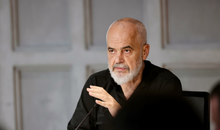
After the dismissals, Rama gathers the mayors in Durrës
2025-07-11 09:42:29
Released on bail, Salianji appears before the Probation Service
2025-07-11 09:34:28
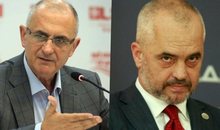
Haxhi Qamil Rama and the directors of the Municipalities!
2025-07-11 09:21:35
30 years since the Srebrenica massacre in Bosnia and Herzegovina
2025-07-11 09:10:52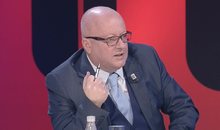
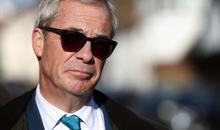
From rhetoric to brandy, POLITICO: 9 things Nigel Farage can do in Albania
2025-07-11 08:53:35
Trump announces 35% tariffs on Canadian goods
2025-07-11 08:39:29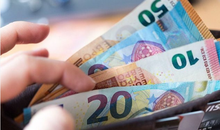
Foreign exchange, how much foreign currencies are sold and bought today
2025-07-11 08:24:25
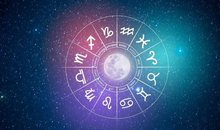
Horoscope, what do the stars have in store for you today?
2025-07-11 07:59:39
Sun and high temperatures, weather forecast
2025-07-11 07:41:09
Morning Post/ In 2 lines: What mattered yesterday in Albania
2025-07-11 07:20:14
Zhupa: In Theth, some Austrian strategic investors want the empty area
2025-07-10 22:57:08
Malltezi: SPAK admits, we are in a process that began with Balla's false report
2025-07-10 22:34:16

Si të çliroheni nga bllokimet emocionale me anë të ushtrimeve
2025-07-10 21:57:24

Lala: Veliaj wanted to return as mayor
2025-07-10 21:40:46

VIDEO/ Brawl in Bolivian parliament, deputies physically clash
2025-07-10 21:20:30


Albania experienced one of the longest heat waves of the last decade
2025-07-10 21:01:09

The Government approves new procedures for declaring residence in e-Albania
2025-07-10 20:39:32

Koka: Northerners will not forget Edi Rama's racist operation in Theth
2025-07-10 20:18:24
The 3 zodiac signs that will be most affected by the 'Full Moon' of July 10
2025-07-10 20:04:49
New director of the National Center of Cinematography appointed
2025-07-10 19:51:12
Korça/ 40-year-old man jumps from fifth floor balcony, in critical condition
2025-07-10 19:40:19
'Tired Woman'/ The Syndrome That Affects Thousands of Women Every Day
2025-07-10 19:34:02
Jane Birkin's original Hermès bag sells for $10 million
2025-07-10 19:26:22

Britain-Ukraine agreement signed for 5,000 Thales missiles
2025-07-10 19:00:25
Fire in Zvërnec, flames endanger two hotels
2025-07-10 18:57:19
Croatia restores compulsory military service
2025-07-10 18:39:01
Spahia: The great truth of the strong accusation of the residents of Theth
2025-07-10 18:35:07


The Supreme Court left him in prison, Meta addresses the 'Constitution'
2025-07-10 17:57:21
New punishment with 'new' regulations
2025-07-10 17:54:46
EU translator fired over fears for Zelenskyy's safety
2025-07-10 17:45:37
'You are a policeman, but not God, take my soul', protest for Agon Zejnullahu
2025-07-10 17:41:21


Video/ Rama repeats the scenario, kneels before Meloni again
2025-07-10 16:56:31
He set fire to a plot of olive trees, 50-year-old man arrested in Shijak
2025-07-10 16:46:19

Rubio: US and Russia have exchanged new ideas for Ukraine peace talks
2025-07-10 16:36:20
Death of 27-year-old, Lipjan Police Commander Resigns
2025-07-10 16:21:28
Video/ An apartment burns in Tirana near the New Bazaar
2025-07-10 16:09:36


Jensila lights up the internet with her birthday greetings to Ledri
2025-07-10 15:42:08
They're full of pesticides! List of 12 products we need to be careful of
2025-07-10 15:31:04

Worker falls from scaffolding in Shëngjin, urgently sent to Trauma
2025-07-10 15:11:03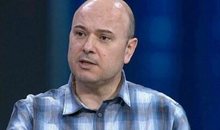
Malltezi: Within one day they seized my accounts, properties and shares
2025-07-10 15:01:23
EU: Israel has agreed to more aid to Gaza
2025-07-10 14:55:19
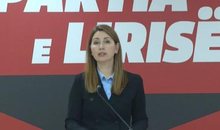

Murder of Reni Dobra, 23-year-old's vehicle pulled from the water
2025-07-10 14:29:23
Trump's tariffs on Brazil raise coffee prices
2025-07-10 14:16:07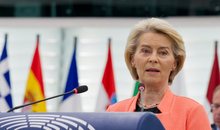
Ursula von der Leyen survives no-confidence vote
2025-07-10 14:04:27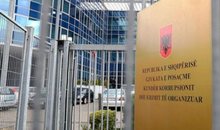


Fire in Lezha, flames near electrical substation
2025-07-10 13:32:24
Residents clash with police in Theth, a woman faints
2025-07-10 13:24:38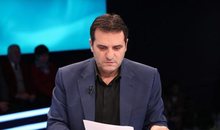
"Rama and Xanun"
2025-07-10 13:15:46
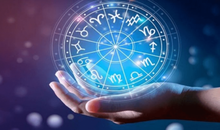
Zodiac signs most likely to get divorced in July 2025
2025-07-10 12:45:51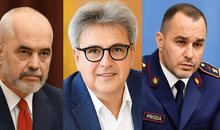
A scapegoat for an illegitimate Republic
2025-07-10 12:35:02
"He has devastated his own nation"/ Berisha: Rama imprisons his opponents!
2025-07-10 12:26:54

Albanian man injured with knife in Italy
2025-07-10 12:08:55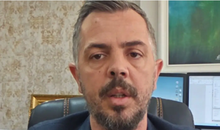
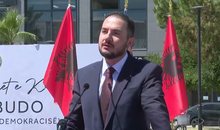


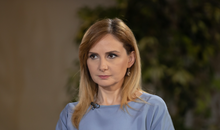


23-year-old in Mat drowned with rope, 4 suspects are being held
2025-07-10 10:58:53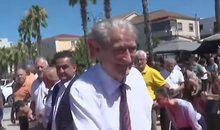
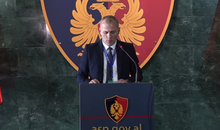
After the dismissals, the new director of the Shkodra Police is appointed
2025-07-10 10:30:10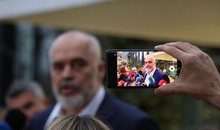
BIRN: Rama's action for public spaces, a repeated spectacle
2025-07-10 10:29:11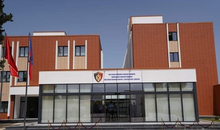
Action in Theth, Shkodra Police leaders dismissed
2025-07-10 10:16:28
Fatal accident on the Tirana-Durres highway
2025-07-10 10:01:58
The incinerator does not exist, but the government continues to increase funds
2025-07-10 09:51:45